VPN on Beeline router to bypass blocking
Beeline is actively introducing IPoE technology into its home networks. This approach allows you to authorize a client by the MAC address of its equipment without using a VPN. When transferring the network to IPoE, the router's VPN client becomes unused and continues to knock hard on the disconnected provider VPN server. We can only reconfigure the VPN client of the router to a VPN server in a country where Internet blocking is not practiced, and the entire home network automatically gets access to google.com (at the time of this writing, this site was blocked).
Beeline Router
Beeline uses VPNs like L2TP in its home networks. Accordingly, their router is sharpened for this type of VPN. L2TP is IPSec + IKE. We need to find a VPN provider that sells VPNs of the appropriate type. For example, take FORNEX (not for publicity).
Configure VPN
In the control panel of the VPN provider, we will learn the settings for connecting to the VPN server. For L2TP, this will be the server address, login and password.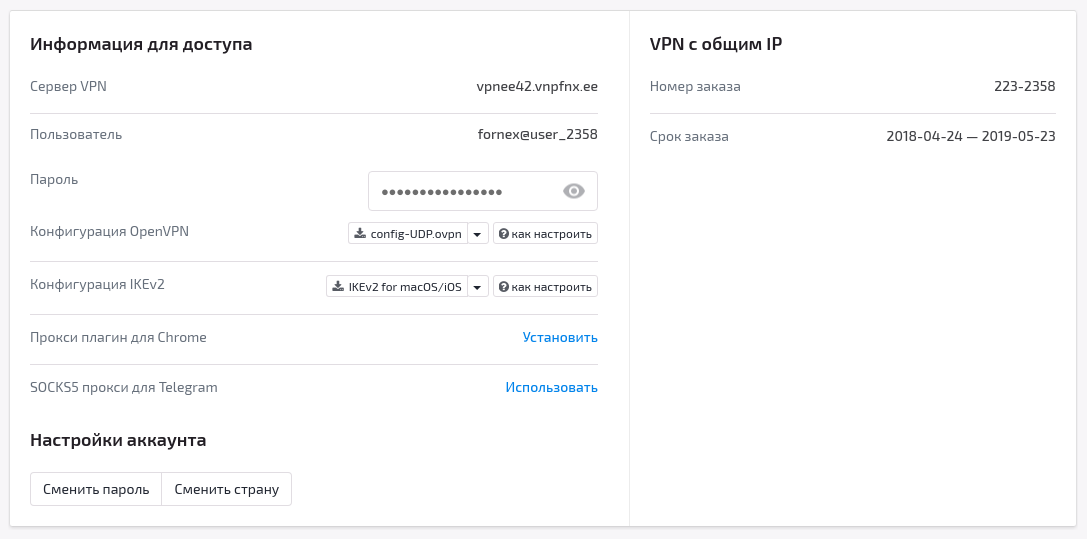
Now we enter the router.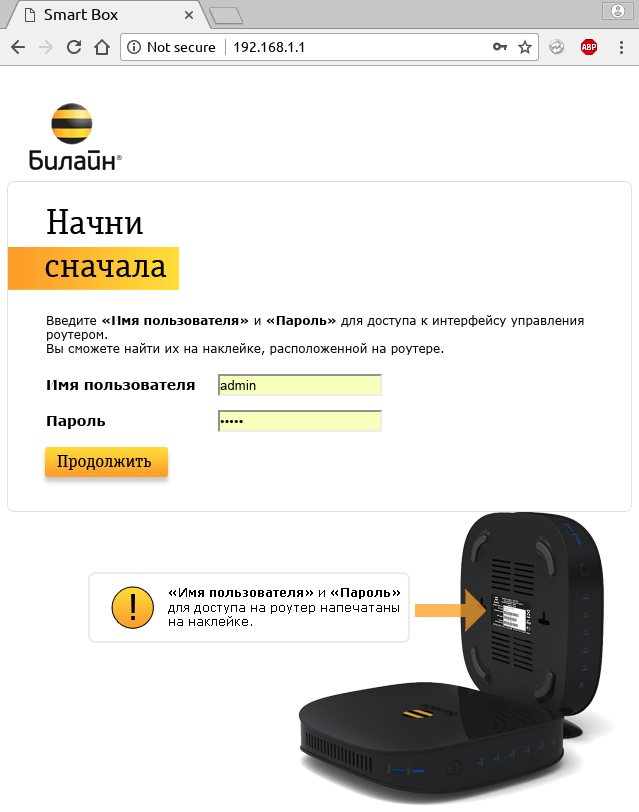
As indicated in the tooltip, "look for the password on the box."
Next, click in the "Advanced Settings", then in the "Other".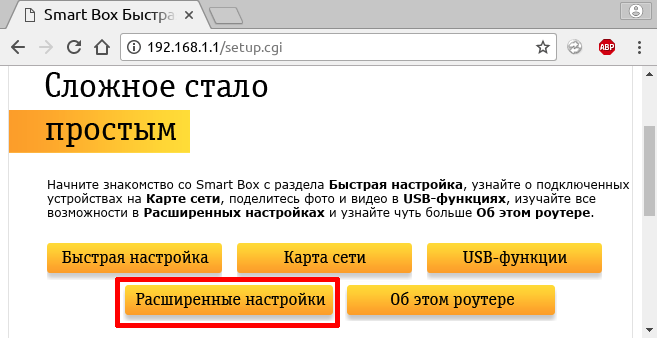

And here we get to the L2TP settings page (Home> Other> WAN).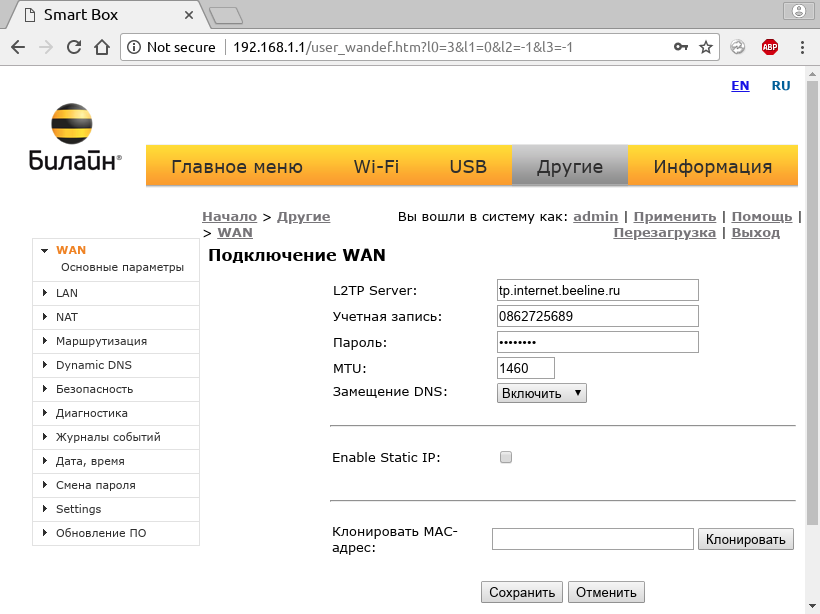
The parameters already entered the address of the L2TP server Beeline, login and password to your personal account Beeline, which are also used on the L2TP server. When you switch to IPoE, your account on the L2TP Beeline server is blocked, which leads to a significant increase in the load on the provider's IKE server, since the whole crowd of home routers continues to go to him day and night, once a minute. In order to slightly alleviate the fate thereof, we continue.
Enter the L2TP server address, login and password provided by the VPN provider.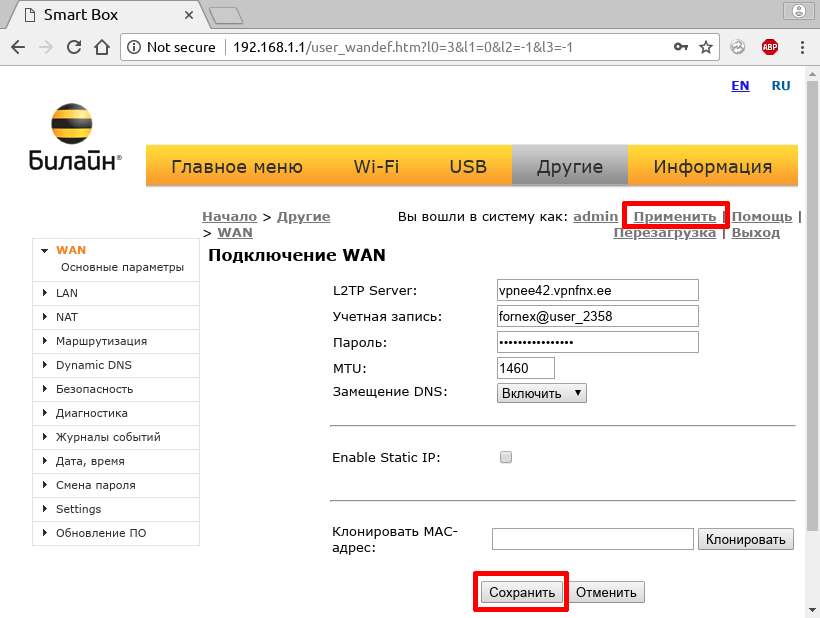
Click "Save", then "Apply".
Go to the "Main Menu"
then again in the "Advanced Settings".
In the end, what we did.
In the section "DHCP interface" we received the settings from the Beeline DHCP server. We are given a white address and DNS, which work out the blocking. In the "Connection Information" section, settings from the VPN provider came to us: the addresses are gray (so sekurny) and DNS without blocking. DNS servers from the VPN provider block the DNS servers from DHCP.
Profit
We received a miracle router that distributes WiFi with a working Googol, a satisfied grandmother continues to chat in Telegram, and PS4 happily loads content from PSN.
Disclaimer
All trademarks belong to their respective owners and their use in this material is a consequence of pure coincidence. All addresses, logins, passwords, identifiers - are fictional. The article is not advertising any provider or equipment because This trick works with any equipment in the network of any telecom operator.
')
Source: https://habr.com/ru/post/455166/
All Articles